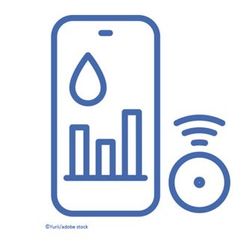© 2025 MJH Life Sciences™ , Patient Care Online – Primary Care News and Clinical Resources. All rights reserved.
Insulin-Related Hypoglycemia: Elderly Most Vulnerable, Study Says
Patients aged 80 years or older were more than twice as likely to visit the ED and nearly 5 times as likely to be hospitalized for insulin-related hypoglycemia than those aged 45 to 64 years.
Primary care physicians are well acquainted with the dangers of insulin-related hypoglycemia. A new study highlights just how serious that burden might be, especially among the elderly. The results suggest that elderly patients are more than twice as likely to end up in the emergency department (ED), and 5 times more likely to be hospitalized for insulin-related hypoglycemia. The study was conducted by researchers at the CDC and published in JAMA Internal Medicineonline on March 10, 2014.
“Rates of ED visits and subsequent hospitalizations for [insulin-related hypoglycemic events] (IHEs) were highest in patients 80 years or older,” the authors concluded. “The risks of hypoglycemic sequelae in this age group should be considered in decisions to prescribe and intensify insulin.”
The use of insulin in the treatment of diabetes has risen 50% over the past decade, according to background information described in the study, with one-third of patients currently receiving insulin therapy. While tight glycemic control is linked to fewer diabetes complications, it is also linked to patient harm.
Using data from 63 hospitals involved in the National Electronic Injury Surveillance System–Cooperative Adverse Drug Event Surveillance project, which monitors medication-related adverse events, the researchers estimated US ED visits and hospitalizations for insulin-related hypoglycemia from January 1, 2007, to December 31, 2011. They also looked at data in the National Health Interview Survey, a national survey of civilian households, to estimate US patients with diabetes who were receiving insulin or oral antidiabetic agents. There were 97,648 ED visits for hypoglycemia annually. Of these visits:
• 29.3% resulted in hospitalization
• 60.6% had severe neurologic sequelae
• 23.2% presented with shock, loss of consciousness, or seizure
• 32.3% presented with altered mental status
• 53.4% had blood glucose levels ≤ 50 mg/dL
• Insulin-treated patients 80 years or older were more than twice as likely to visit the ED and almost 5 times as likely to be hospitalized for IHEs than patients aged 45 to 64 years
• The most common causes for IHEs were related to reduced food intake (45.9%) and administration of the wrong type of insulin (22.1%), of which the most common mistake was taking rapid-acting instead of long-acting insulin (52.3%)
“Insulin is a complicated drug to manage, so we expected that it would cause quite a few ED visits for adverse events,” emphasized Andrew Geller, MD, a medical epidemiologist in the CDC’s Division of Healthcare Quality Promotion and lead author of the paper, “but we did not appreciate the full severity of these insulin-related ED visits.” Almost one-third of ED visits for hypoglycemia resulted in hospitalization, Geller pointed out, and almost two-thirds of ED visits for hypoglycemia were accompanied by loss of consciousness, confusion, or injury, such as falling after fainting.
The authors mentioned a number of age-related risk factors that could affect diabetes management among elderly patients. Comorbid illnesses, limited life expectancy, and frailty may all play a role. Many elderly patients have reduced visual acuity and develop arthritis that affects fine motor control, both of which can interfere with injecting insulin. Cognitive impairment may also hinder awareness and communication about hypoglycemic symptoms. Nocturnal hypoglycemia and hypoglycemia unawareness related to autonomic dysfunction can also contribute.
“Until very recently, clinical guidelines emphasized the long-term benefits of tight blood glucose control,” Geller highlighted. “This study supports more recent clinical guidance favoring the need to balance the short-term risks of tight blood glucose control with the potential long-term benefits.” Making this happen, Geller notes, requires evaluating risk for hypoglycemia on an individual basis based on such factors as age, other chronic conditions, and a patient’s ability to safely manage insulin therapy.
Take home points
The study findings suggest these strategies to help improve the safety of insulin therapy:
Use an individualized approach: Consider relaxation of glycemic targets and exercise caution when starting or adjusting insulin therapy in elderly patients; insulin may not be appropriate for some patients aged 80 years or older.
Emphasize meal planning: Reduce missed meals, educate patients about how to coordinate meals with certain types of insulin (eg, rapid-acting products), and evaluate their ability to adjust their own insulin regimens when food intake decreases.
Avoid medication mix-ups: Instruct patients or caregivers to store rapid-acting and long-acting insulins in different locations; educate patients about the importance of paying attention to product labels.
Educate about symptoms: Inform patients, family, and caregivers about how to recognize the symptoms of hypoglycemia and how to promptly treat them.
References:
Geller AI, Shehab N, Lovegrove MC, et al. National estimates of insulin-related hypoglycemia and errors leading to emergency department visits and hospitalizations. JAMA Intern Med. Published online March 10, 2014. doi: 10.1001/jamainternmed.2014.136



